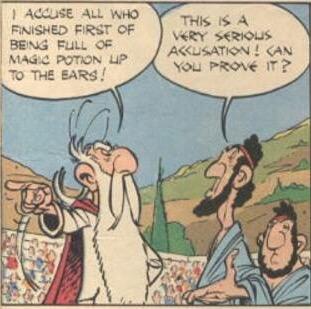I don’t know much about monks to be able to speak of them, but I can say, with some level of confidence, based on my limited and for the most part only Internet experience with Buddhists, that Buddhists, who are supposed to be masters of restraint, aren’t exactly so.
Buddhists are masters of pain. They can make it go away. But they aren’t masters of restraint.
They do not really restrain themselves. Rather, they merely make themself softer.
Impulsivity is a condition whereby instinct is escaping the control of one’s will.
There are impulsive people whose instinct is escaping the control of their will quite clearly and then there are Buddhists who are retarding, but not overcoming, their impulsivity and who thus appear to be in control of themselves.
I see restraint as life-affirming. It is that which opposes death. Death – and by death I mean more than just death in the way it is normally understood, I mean decline, whether it is slow or fast – death is what occurs naturally.
Things left on their own disintegrate.
In order to remain alive, you must restrain yourself. You must resist the natural course of disintegration.
Buddhists are not really opposed to death. They are actually aligned with it. They celebrate it. This is why they are nihilists.
And what is nihilism but position according to which death (decline) is more valuable than life (ascent)?
Few nihilists are honest about their death-wish. Most hide it behind some sort of idealism, usually involving some sort of afterlife, though this is not always the case (as Baudrillard noticed, the ideal world can also be immanent, taking place within this very world in the form of simulation, rather than transcendent, existing outside of this reality and accessible only after death.)
Nihilism is often defined as a feeling of being uncomfortable with the way reality is. I reject this definition on the ground that this is merely a symptom that may or may not be present. In other words, it is possible to be a nihilist and at the same time comfortable with the way reality is.
Buddhists are such an example. They are quite comfortable with the way reality is. Indeed, they are EXTREMELY comfortable with the way reality is, and it is precisely of this extreme comfort, ironically, that they are nihilists.
Life is a struggle against death.
In the absence of struggle, there is only death.
Buddhists are opposed to struggle against death.
They see struggle as something unnatural, and indeed, struggle is not natural. What is natural is death, not life. And so Buddhists, in a very real sense, are more natural than other people. But to be natural means to align with death. It’s not a good thing.
Nihilism, I define, as a physiological condition where body no longer fights against death but is aligned with it.

